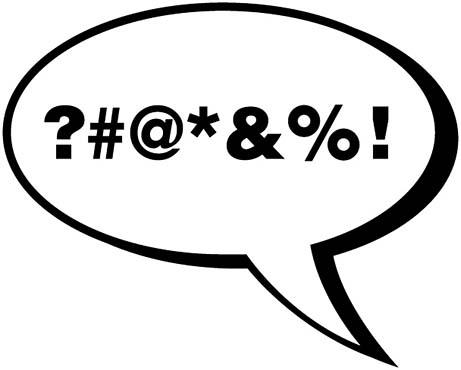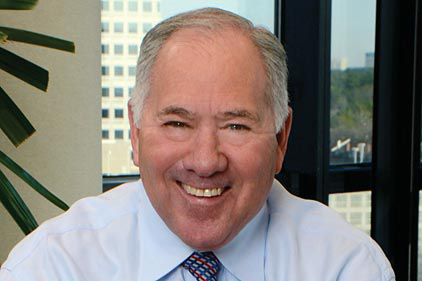The old axiom that “words can never harm me” may have been true at some point, but that is certainly no longer the case in this age of #MeToo. Words spoken today, especially if they are lewd, profane, sexually explicit, or sexual innuendo can and often do result in claims of sexual harassment. The potential legal liability for sex discrimination that attaches to such words has been a reality for a number of years. Most commonly it has been the creation or tolerance of a hostile work environment based upon sex that has led to charges and lawsuits. Today, however, it is the intense attention that has been focused on sexual assault and sexual misconduct in the workplace that has brought anything related to sex, including lewd or sexually explicit comments to the forefront of employer’s legal concerns.
Virtually the entire world has been riveted by the almost daily account of some high-profile CEO, executive, Hollywood star, television talking head or politician being accused of sexual assault, or at a minimum unwanted sexual advances, by women who had the misfortune to interact with them. The fallout from the continuing revelations of sexual misconduct by persons that have long been admired has been to make the workplace ultra-sensitive to comments or remarks that have explicit or even implicit sexual content.
Profanity and the New Generation
Profanity of varying stripes has been a reality in some workplaces for as long as anyone can remember. For Gen Xers, millennials, and sadly even post-millennials, profanity is part of their everyday conversation. In fact, today’s younger workers sometimes struggle to form a sentence that doesn’t contain the “F” word. Some celebrities see the use of such language as a badge of honor. The lyrics to many songs are replete with sexual references and obscene words. Since calling people out over vulgar language in lyrics is seen as being out of the question, the conduct is perpetuated. That attitude may help explain, at least to some limited degree, why until the #MeToo movement brought the treatment of women in the workplace front and center, obscene, coarse and even vulgar language has been generally tolerated in most cases.
What Offends One Person May Not Offend Another
One of the challenges with managing potentially offensive language in the workplace, including that involving sexual content, is its subjectivity. What one person may find objectionable or obscene, might not pose a problem for someone else. But with the new-found attention on comments or conduct that explicitly or even implicitly, portrays women as sex objects, no employer can afford to tolerate it in their workplace. The fallout from the intense focus on sexual misconduct generated by the #MeToo wave has been to empower and embolden women in the workplace to report any hint of such mistreatment. Words or conduct that previously might have just been shrugged off could now form the basis for a claim that they have been subjected to a sexually hostile working environment or worse yet, sexual assault. The potential damage that such a claim even unproven, could cause to the firm’s reputation, customer relations and employee morale is incalculable. If the alleged misconduct involves any physical aspects, as we have seen in almost every publicized incident, the only choice is the forced resignation or outright termination of the offending party.
What Should You Do?
All companies must be even more prepared today to address sexual harassment in the workplace than at any time in the past. Employers that do not have a plan may be unable to appropriately address problems in a timely manner with resulting negative consequences.
Here is what you should do to be prepared:
- In today’s multicultural, multigenerational, and multilingual workforce employers must be especially aware of how cultures may clash and cause hostile work environments. Cultural groups may have different norms regarding profanity, appropriate jokes and stories in the workplace, and displays of friendship. Companies need to be aware of what cultures are represented in the workforce and set a common standard that all employees can know and follow.
- Employers must have a policy addressing what language is appropriate in the workplace. Employees that do not know the rules will break them and some employees may take advantage of the fact that a rule is “not written in the employee handbook” to engage in misconduct. It is imperative that employers have a policy in their handbook that defines harassment and gives examples of inappropriate language.
- All companies need to retrain their supervisors as well as their employees. Supervisors need to understand the seriousness of any allegations of harassment and the need for prompt action. They must know the procedure to address any instances of inappropriate language that could be harassment. Managers must be aware of the circumstances involving crude language that could make employees uncomfortable. Even if the use of that language is not found to be an example of sexual harassment, an employee that is uncomfortable will be unproductive.
- Companies must investigate any claims of sexual harassment promptly and thoroughly. Companies must act when an employee complains that fellow employees are harassing them, telling sexual jokes or stories in their presence, or engaging in any other form of lewd behavior. A quick investigation into the problem with appropriate corrective action can reduce the chance of a lawsuit and help the employee feel safe and comfortable working again.
Conclusion
There is no question that some employees will say inappropriate things at work. Companies must be ready to promptly and effectively address it. With a little preparation, they can minimize the risk of sexual harassment claims against the company and protect their employees. Every employee deserves to work in an environment where they are free from sexual harassment. All companies must do their part to make it a reality.
========
Richard D. Alaniz is a partner at Alaniz Law & Associates, a labor and employment firm based in Houston. He has been at the forefront of labor and employment law for over forty years, including stints with the U.S. Department of Labor and the National Labor Relations Board. Rick is a prolific writer on labor and employment law and conducts frequent seminars to client companies and trade associations across the country. Questions about this article, or requests to subscribe to receive Rick’s monthly articles, can be addressed to Rick at (281) 833-2200 or ralaniz@alaniz-law.com.
Thanks for reading CPA Practice Advisor!
Subscribe Already registered? Log In
Need more information? Read the FAQs





